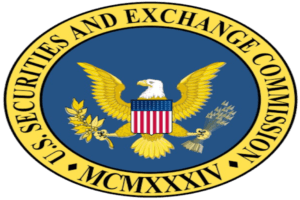
The Securities and Exchange Commission has settled charges against four public companies for failing to maintain internal control over financial reporting (ICFR) for several annual reporting periods. Two of the charged companies also failed to complete the required evaluation of the effectiveness of ICFR for two consecutive annual reporting periods. The SEC has been warning companies for not fixing internal control failures.
According to the SEC’s orders, year after year, the four companies—Grupo Simec, Lifeway Foods, Digital Turbine, and CytoDyn—disclosed material weaknesses in ICFR involving certain high-risk areas of their financial statement presentation. As discussed in the SEC orders, each of the four companies took months, or years, to remediate their material weaknesses after being contacted by the SEC staff. One of the companies is still in the process of remediating its material weaknesses.
“Adequate internal controls are the first line of defense in detecting and preventing material errors or fraud in financial reporting,” said SEC chief accountant Wesley Bricker. “When internal control deficiencies are left unaddressed, financial reporting quality can suffer.”
“Companies cannot hide behind disclosures as a way to meet their ICFR obligations,” added Melissa Hodgman, an associate director at the SEC’s Enforcement Division. “Disclosure of material weaknesses is not enough without meaningful remediation. We are committed to holding corporations accountable for failing to timely remediate material weaknesses.”
Without admitting or denying the findings, each of the four companies agreed to a cease and desist order. The settlement also requires them to pay civil penalties, and in some of the cases to undertake remediation efforts, as detailed below:
- Grupo Simec S.A.B de C.V. disclosed material weaknesses in its annual filings for 10 consecutive years, from 2008 to 2017. In both 2015 and 2016, its management failed to complete the required ICFR evaluation. The company did not make significant progress in devising a control structure and remediating material weaknesses until after the SEC staff contacted it. The company continues to have material weaknesses that are being addressed through remediation. The Commission’s settled order includes violations of Exchange Act and requires payment of a $200,000 civil penalty, and an undertaking requiring retention of an independent consultant to ensure remediation of material weaknesses, including those involving related party transactions.
- Lifeway Foods Inc. disclosed material weaknesses in each of its annual reports for a period of nine years, from 2007 through 2015, and significant deficiencies that in the aggregate constituted a material weakness in 2016. In both 2013 and 2014, company management failed to complete the required ICFR evaluation. Lifeway did not fully remediate its material weaknesses and conclude that ICFR was effective until its fiscal year ended December 31, 2017. Lifeway’s failure to address its material weaknesses was compounded by three announced restatements since fiscal 2012, including two restatements announced during fiscal 2016. The Commission’s settled order includes violations of the Exchange Act and requires payment of a $100,000 civil penalty.
- Digital Turbine Inc. disclosed material weaknesses in each of its annual reports over a period of seven years, from fiscal year 2011 through fiscal year 2017. The company did not fully remediate its material weaknesses until the end of fiscal year 2018, as disclosed in its Form 10-K for the year ended March 31, 2018. The Commission’s settled order includes violations of Exchange Act and requires payment of a $100,000 civil penalty.
- CytoDyn Inc. disclosed material weaknesses in each of its annual reports over a period of nine years, from 2008 through 2016. CytoDyn included in its public filings the same, nearly boilerplate, disclosure of material weaknesses for nine consecutive years. CytoDyn remediated its material weaknesses and determined that ICFR was effective as of May 31, 2017. The Commission’s settled order requires payment of a $35,000 civil penalty.
The SEC’s investigation was conducted by members of the Division of Enforcement’s Financial Reporting and Audit Group (FRAud Group). It’s likely that the SEC will continue to keep up its vigilance on ICFR and the pressure is on for companies to fix internal control failures. ![]()

